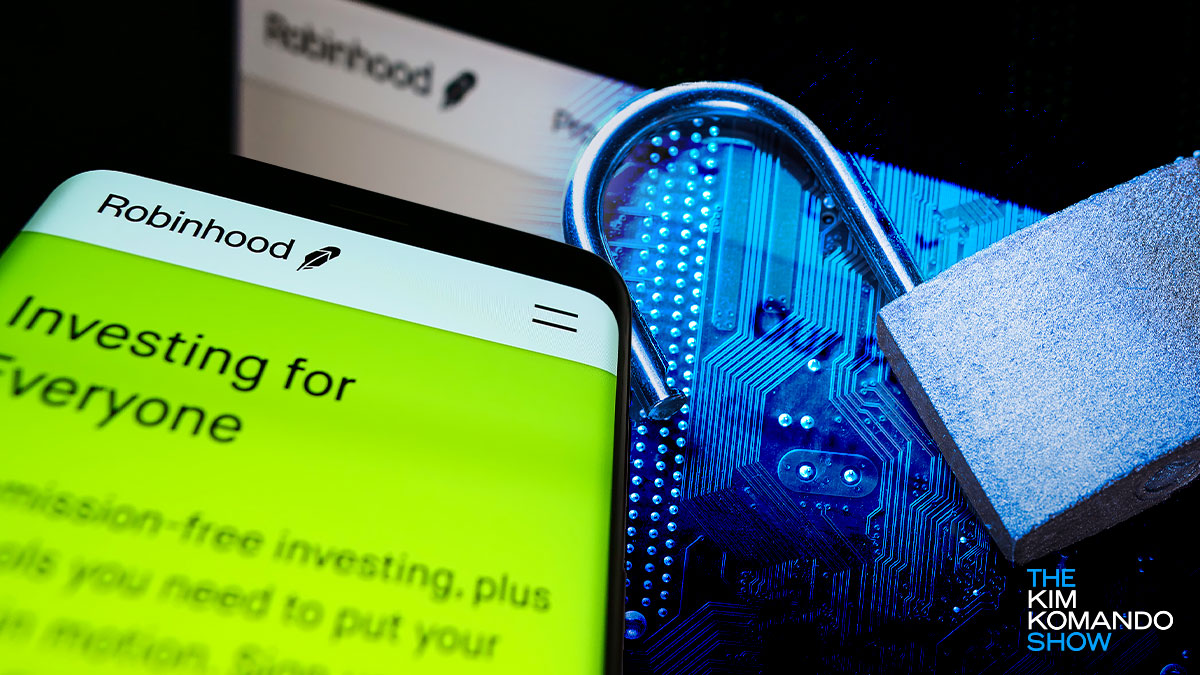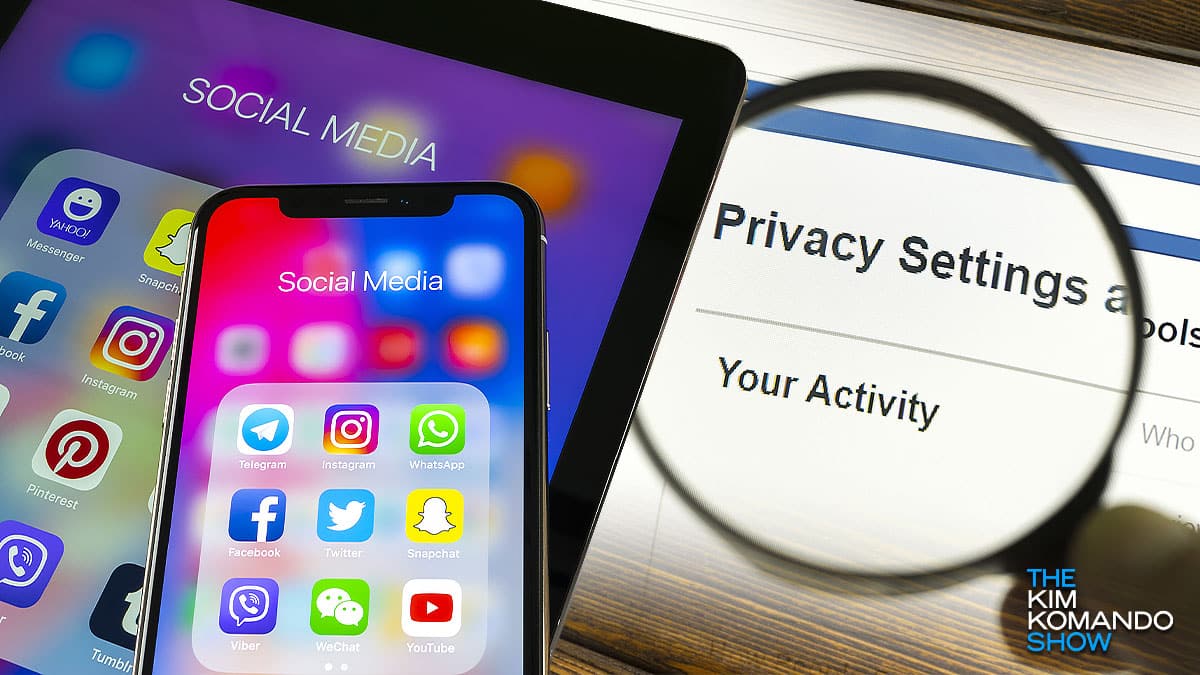We talk to Darius from Incogni, who tells us how you can remove your personal data from the internet. Plus, a family claims an Amazon driver stole their cat, people are yelling a lot at Siri, and there’s a new sober dating app.
Your IP address: What it is and why you need to protect yours if you care about privacy

Using the internet is a complicated affair. It may not feel like that to you as a user. You click on your browser and get on with your day — it’s as easy as pie.
Behind the scenes, though, is a whole different story. It’s full of numbers like your Internet Protocol (IP) address, basically your digital home address. This numeric label distinguishes your phone or computer from other devices worldwide.
When you type in a website, your computer translates that into numbers, searching the site’s IP address and loading it onto your screen. Just as money makes the world go round, so, too, do numbers keep the internet chugging along. But your whole digital world can crash when someone snatches your IP address.
An exposed IP address puts you in danger
Your IP address plays a significant role in sending and receiving data online. It’s tied to sensitive information, like your online identity and location. If someone tracks down this number, they could use it as a starting point for nefarious purposes.
Sadly, it’s easy for strangers online to find your IP address. It’s a huge vulnerability: They could hack your device or steal your identity. Or they could enter your address into a free tracking website like iplocation.net to find out where you live. It even comes with a built-in map:

A lot of people on social media apps will doxx one another. Suppose you comment that you like pineapple on pizza on Twitter. Someone having a bad day might respond by tracking down your IP address, posting your name and address and calling their followers, like “Let’s protest in front of their house.”
Of course, that’s a light-hearted example. Reality can be much grimmer.
And get this: Tracing someone else’s IP address is legal. Authorities only intervene when people use one another’s IP addresses for crimes. All the apps and websites you use collect your IP address and other private data.
So, how does someone find out your IP address?
First, they could try to impersonate you. For instance, a hacker could break into a vulnerable social media account if you aren’t using two-factor authentication. If you reuse passwords, they could break into even more accounts until they reach one with sensitive data. Then, it’s a free-for-all with your private info.
10 things you should never say to an AI chatbot

This is a heartbreaking story out of Florida. Megan Garcia thought her 14-year-old son was spending all his time playing video games. She had no idea he was having abusive, in-depth and sexual conversations with a chatbot powered by the app Character AI.
How I got my cell phone number off the internet
Redbox had a black box: Redbox went out of business, and 24,000 movie kiosks are sitting around. Your name, email address, home address and rental history are likely stored on those internal hard drives, going back a decade. Even worse? Some machines stored the first six and last four digits of credit cards. Hello, we need a factory reset.
Are your smart devices tracking too much?
Your smartwatch is great for tracking steps, but have you ever thought about where all that personal data actually goes?
From sleep patterns to calorie intake, it’s like a digital diary — and it’s worth billions to insurance companies, marketing outfits, advertisers and, of course, hackers. Don’t panic! I’ll walk you through how to lock down your privacy.
Data brokers are selling your life. Here’s how to stop them.

The data broker industry is worth almost $400 billion. Whether it’s your Google Search history, movies you’ve streamed or a summary of your last doctor’s visit, they’re keeping tabs on your life.
Feel violated? You should. These brokers even sell your data to scammers so they can use it to target you. No wonder most people get overloaded with spam texts and calls every day.
Everything we know about the MoneyGram breach

Another day, another massive data breach. This time, it’s MoneyGram, a global mega-company that handles money transfers, bill pay and other financial services. They have digital platforms and retail locations, and they even power Walmart’s money-transfer service.
🏥 When you get a bladder infection, urine trouble: The next time you’re at the doctor, AI could be eavesdropping on everything you say and adding it to your health records. Ambient AI transcribes and organizes patient notes in real time. Sure, it cuts down on admin time, but AI can hallucinate facts and might use your sensitive data for training. You can decline it … for now. Just tell your doc, “No AI for me.”
Google isn’t going to hand your location to the police anymore: Location History (aka Timeline) tracks your every move, and cops were able to pull your data from Google’s servers if you were near a crime scene at the wrong time. Now it’s being stored on-device only, so police will have to come to you directly with a warrant.
MoneyGram data breach: Over 150 million customers were exposed. We’re talking names, addresses, IDs, bank account numbers, the whole nine yards. How’d they do it? Someone pretended to work there and got in. If you’re affected, expect to get a notice offering two years of free identity protection and credit monitoring services.
So much data left exposed for anyone to see

Another day, another monumental data breach. Just because they’re getting more common doesn’t mean you can tune it out. In fact, it’s time to get even more serious about your private information and what’s posted online.
✔️ It’s a yes from me: A new California bill could stop companies from collecting and sharing personal data with just one click. It’s a royal pain in the butt to opt out of every single site. If the bill passes, it could impact all Americans, since many companies apply the same privacy protections nationwide.
Scam watch: 3 scams spreading like fire across the U.S.

Scammers are clever, but they’re not very creative. Most of their tricks are recycled versions of tricks that worked in the past. There are a few I’ve seen cropping up again because criminals know they work every time.
Lettuce us all pay attention: Grocery chain Kroger is under investigation for shady dynamic pricing. Their electronic price labels can change based on time and demand, like during the after-work rush. It gets worse (paywall link); they’re working with an AI company that uses personal data to figure out how much you’re willing to spend.
Find your family tree without compromising your data

Seven million 23andMe customers thought they were just getting insights into their family history — instead, they got their data hacked.
It went beyond names and addresses. Hackers got their hands on DNA genotypes, predispositions to certain conditions and carrier status. And they were able to hunt down genetic relatives for millions of 23andMe customers. So scary.
A data buffet: Golden Corral was hit by a cyberattack last August (and we’re just finding out about it now!), exposing the personal data of over 183,000 folks — current and former employees, plus their beneficiaries. We’re talking Social Security numbers, financial deets and medical info. If you’ve been on their payroll, freeze your credit ASAP.
A life in politics is full of parties: A study reveals many political sites collect personal data — everything from your photos, resume and political views to how you donate — without giving you a place to consent. And yes, they might pass or sell your info to other campaigns. You’ve been warned.
Your car is collecting your personal data, even your sex life

When I read this report, I knew it would be important for you to know even though you do all the right things. You remove the shady apps from your phone and adjust privacy settings on your kid’s smart toys. Heck, you even stop Alexa from saving recorded conversations. You’re all set, right? Just wait until you get into your car.
The worst money apps for your data revealed

I can’t remember the last time I went into a bank. No reason to now that I do it all from my phone. We trust banking apps to keep our financial info safe and secure — but what about privacy? Oh yeah, that.
Merchant Machine reviewed the privacy policies of today’s top banking and finance apps. Researchers found that the 20 worst offenders take an average of 20 unique types of data. Major yikes.
Use Apple, Google, Facebook or Twitter? Here's how to find out what they know about YOU

It’s no surprise anymore that social media companies like Meta gather a lot of information about you. Tap or click here for 10 Facebook privacy and security settings you need to change right now.
When you create an account with Facebook, Instagram, or Twitter, you’re asked if you’d like to sync your contacts. It seems harmless, but it’s not. Here’s why you need to stop doing this.
